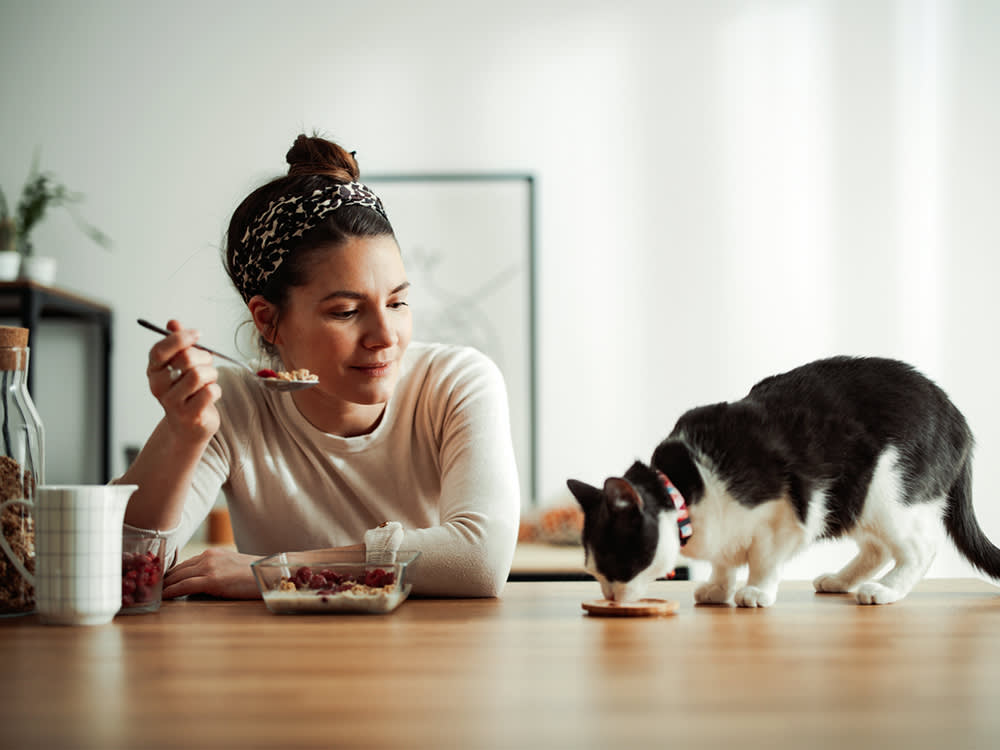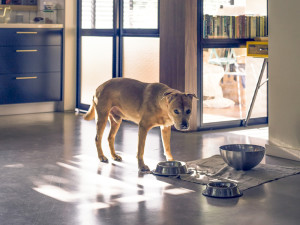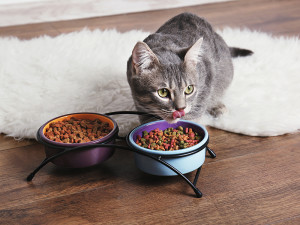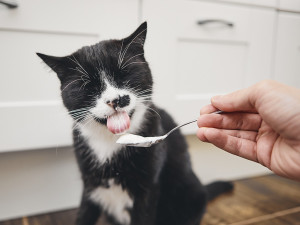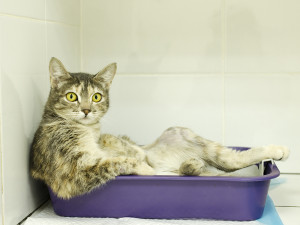Gut Reactions: Pets Have Shockingly High Levels of E. Coli
A new report finds that one in three dogs and one in seven cats have unhealthy levels of E. coli present in their gut microbiome.
Your dog raids the trash can and drinks from puddles. Both your dog and cat spend countless hours licking everything from their paws to their privates, so it’s no surprise that their stomachs are upset — but it could be more than that.
The 2022 State of the Gutopens in new tab report found that one in three dogs and one in seven cats had unhealthy levels of E. coli in their guts. At high levels, E. coli can cause serious illness, such as diarrhea and vomiting. Researchers at AnimalBiomeopens in new tab, a microbiome testing service for pets, analyzed fecal samples from thousands of pets to assess the makeup of their gut microbiomes and made a surprising discovery: It’s not just E. coli thriving in your pet’s gut.
The report found that 92 percent of dogs and 88 percent of cats experienced at least one symptom of gut microbiome imbalance in the last 12 months, including skin problems, weight issues, chronic inflammation, heart disease, dementia, and a compromised immune system.
The gut microbiome refers to the community of bacteria, fungi, viruses, and other organisms that live in the digestive tract. In the right proportions, these communities of organisms contribute to overall health, but an overgrowth creates an imbalance because the beneficial bacteria can’t compete with overgrown organisms.
How much do you spend on your pet per year?
“It’s super important to have those microbes balanced and happy,” Dr. Holly Simon, director of Vet Solutions and Education for AnimalBiome, says. “There is research…that shows an association between an imbalance in the gut [microbiome] and diseases like diabetes, cancer, IBD, colitis…the list goes on and on.”
Maintaining the right balance of organisms in the gut microbiome is essential to your pet’s health and wellbeing. Changes in the gut microbiome lead to lack of diverse bacteria, loss of beneficial bacteria, and overgrowth of pathogens — and you thought the contents of the trash can were gross.
Gut Feelings
Your pet might not always make the best decisions when it comes to gut health. Case in point: Ingestion of toxins is one of the top risk factors for gut microbiome imbalance. Sometimes, the very things meant to help your pets feel better, such as a different diet, supplements, and prescription medications — and even a new four-legged playmate — can throw their bacteria balances out of whack.
Even antibiotics, which are often prescribed to alleviate diarrhea and other gastrointestinal issues in pets, are also a significant contributor to microbiome imbalances. “Antibiotics kill bacteria indiscriminately [and] friendly microbes are collateral damage,” Simon explains.
Geography plays a role in gut microbiome health, too. Pets who lived in large population centers had greater exposures to the risk factors for a gut health imbalance. For cats, exposures were highest in California and New York and lowest in Vermont and New Jersey. Dogs had the highest risks in California, Texas, and Illinois and the lowest in New Hampshire and Connecticut.
Even though gut health imbalances are prevalent, more than one-third of pet parents did nothing to treat gut health imbalances in their dogs and cats (and just 36 percent reported that treatments were effective).
Trust Your Gut
There might be some clear signs that your pet has a gut microbiome imbalance, but chronic inflammation and compromised immune system are not as obvious. Gut microbiome testing could help.
AnimalBiome uses home microbiome tests that use two pea-sized samples of feces to conduct DNA sequencing and compare the results to a healthy reference set. It then generates a report of the results and actionable information about diet, supplements, and environmental changes to restore balance. Dave Knoepfle, chief marketing and sales officer for AnimalBiome, calls it “a treasure trove of information about your pet.”
It might also be a good idea to test the gut microbiome after your pet finishes a round of antibiotics. Trust your gut: If you think your pet’s gut microbiome is out of whack, do the test and implement some strategies to get those organisms, including unhealthy levels of E. coli, back in balance.
“No one is talking about this,” Knoepfle says. “It’s really important, not just for the gut health of the animal — but the overall health.”
